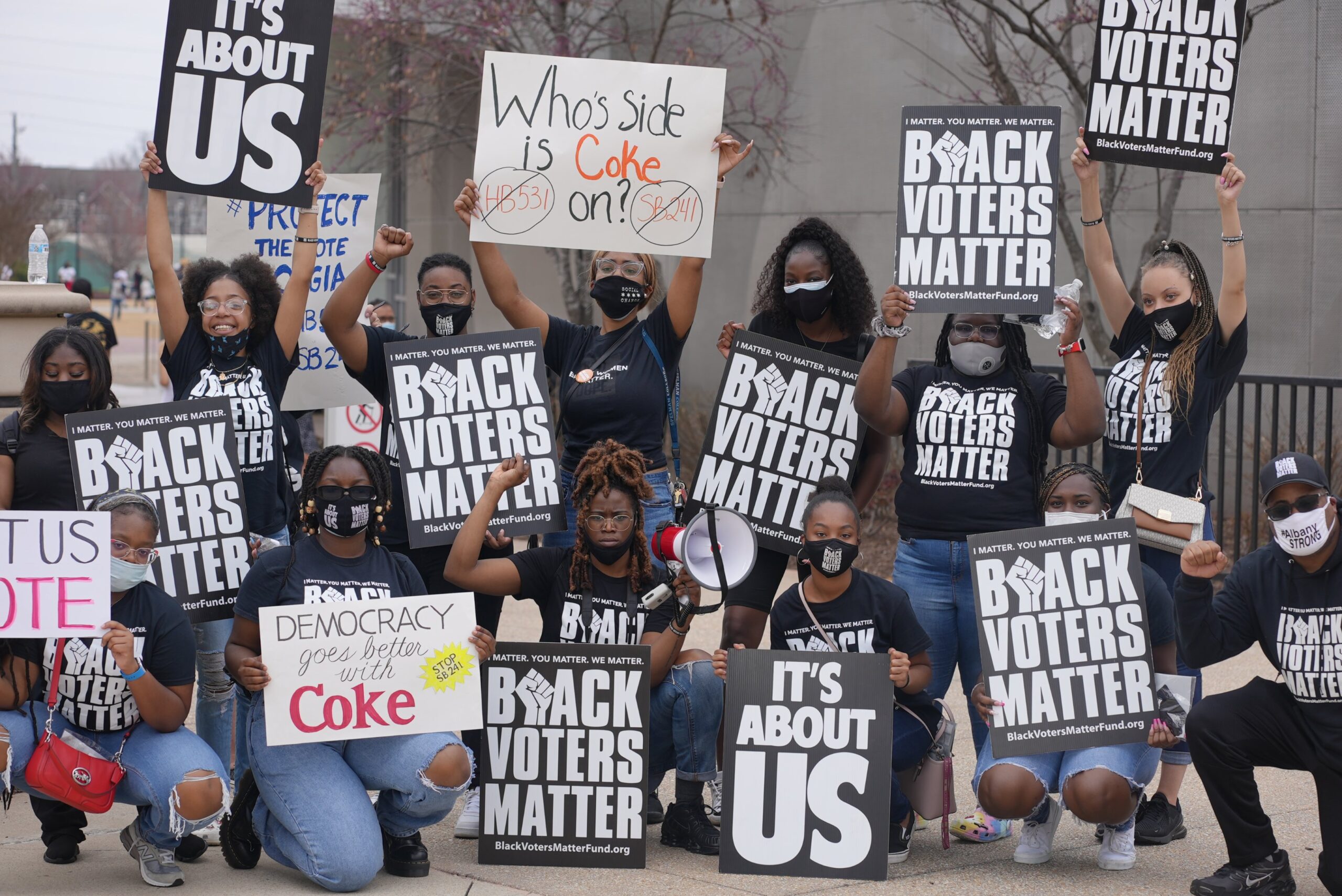LaTosha Brown opened with a song.
Speaking about voting rights one recent spring day in Selma, Alabama, the Black activist delivered the civil rights anthem “Keep Your Eyes on the Prize” in a voice showcasing her background as a jazz singer. She told her audience, through music, that the fight for equal access to the ballot box was as urgent as ever.
The song drew cheers from a few dozen listeners, young and old, who had gathered before the brown-bricked African Methodist Episcopal church in a city known for its poverty as much as for its troubled racial past.
For Brown, co-founder of Black Voters Matter, the song served to introduce a question.
“Close your eyes,” she said. “What would America look like without racism?”
“How will we ever create what we’re not even envisioning? There was nothing that was brought into the real world that was not first envisioned.”
A year after the police killing of George Floyd galvanized public attention to racial injustices, amid a barrage of restrictive voting laws being passed by state legislatures, Brown’s group is redoubling its march toward its North Star: increasing the political power of Black communities.
Like many groups that serve predominantly Black communities, the organization was flooded with donations after Floyd’s death. A year later, the impact is visible: The group says it gave $10 million to 600 community-based groups in 15 states, mostly in the South, who, among other things, registered voters, distributed flyers about the importance of voting, held phone banks, sent millions of text messages, canvassed communities reminding people to vote and rented buses to drive people to the polls.
Those efforts are widely credited with helping fuel Black voter turnout in Georgia, which, in part, led to Democrats scoring victories in the presidential and U.S. Senate races that gave them control of both houses of Congress and helped President Joe Biden enact his legislative agenda. Now, in the face of new restrictions on voting in areas heavily populated by people of color, new challenges are emerging.

